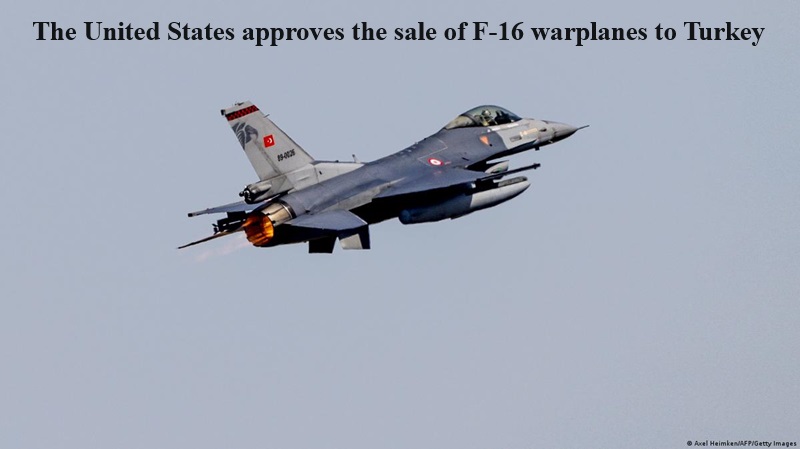
On January 26, the United States granted approval for the sale of F-16 warplanes to Turkey. In an official statement, the US State Department announced that Turkey would receive 40 new F-16s along with upgrades for 79 jets in its existing fleet. In accordance with American law, the State Department informed Congress about this agreement, as well as a separate deal involving the sale of 40 F-35s to Greece, valued at $8.6 billion.
A report from the news agency AFP indicated that Turkey’s air force stands to benefit from the acquisition of new F-16s, particularly since Turkey was expelled from the US-led F-35 joint strike fighter program in 2019. This expulsion resulted from Turkish President Recep Tayyip Erdogan’s decision to procure an advanced Russian missile defense system. Following the formal notification by the State Department, Congress has a 15-day window to raise objections to the sale; if no objections are raised within this period, the sale is deemed final.
The approval from Washington follows Turkey’s recent endorsement of Sweden’s NATO membership on Tuesday. Initially, President Erdogan opposed Sweden’s NATO bid due to concerns about Stockholm’s perceived alignment with Kurdish groups viewed as “terrorist” by Ankara. In response, Sweden took measures to address Erdogan’s security concerns, including tightening anti-terrorism legislation. US Secretary of State Antony Blinken communicated to Ankara that the ratification of Sweden’s NATO candidacy could potentially ease congressional resistance to the F-16 sale.
Turkey had initially requested the fighter jets in October 2021, but the delay in endorsing Sweden’s NATO bid had posed a significant hurdle in securing congressional approval for the sale. The Senate Foreign Relations Committee, a crucial entity in the US responsible for approving arms transfers, played a pivotal role in this decision. On Friday, Democratic Senator Ben Cardin, the committee’s chair, acknowledged that approving the F-16 sale was a challenging decision.

Post Your Comments